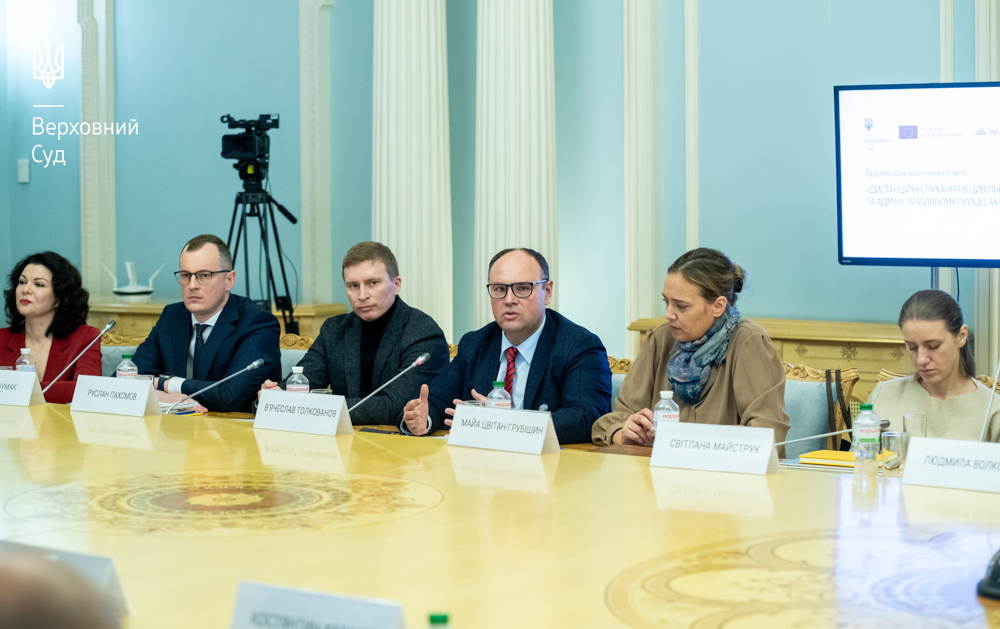Contact center of the Ukrainian Judiciary 044 207-35-46

Remote court proceedings in non-criminal proceedings are gaining momentum. Firstly, Ukraine is on the path to membership in the European Union, so we cannot stay away from digitalisation matters. Secondly, given the challenges of Russia's full-scale invasion of our country, the task of the courts is, on the one hand, to ensure the right of individuals to participate in court proceedings, and on the other hand, to guarantee the safety of participants in court proceedings. These problems can be solved, in particular, through the development of remote hearings.
This was emphasised by Vitalii Urkevych, Secretary of the Grand Chamber of the Supreme Court, during the presentation of the updated analytical report "Remote Hearings in Civil, Commercial and Administrative Proceedings", prepared by the NGO Interregional Expert Centre "PRO Justice" with the support of the EU project "Pravo-Justice".
According to Vitalii Urkevych, the Grand Chamber of the Supreme Court has held 93 videoconferences in 43 cases since 1 January. In his opinion, the discussion of the results of the presented research will provide an opportunity to understand and solve the problems that arise during the remote consideration of cases.
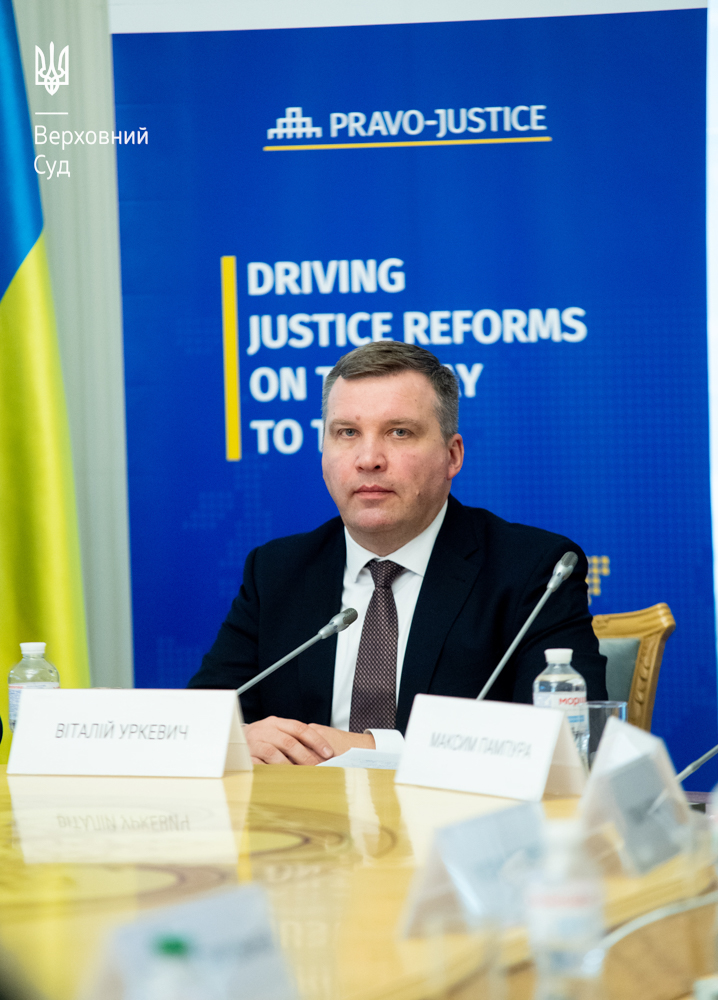
Hryhorii Usyk, Chairman of the High Council of Justice, noted that the first challenge for the judiciary was the COVID-19 pandemic, when direct participation of the parties in the proceedings was limited. Now, Russia's full-scale invasion of Ukraine places an even greater responsibility on the judiciary to ensure justice even under martial law. This requires the search for alternative ways to ensure justice, one of which is the remote review of cases.
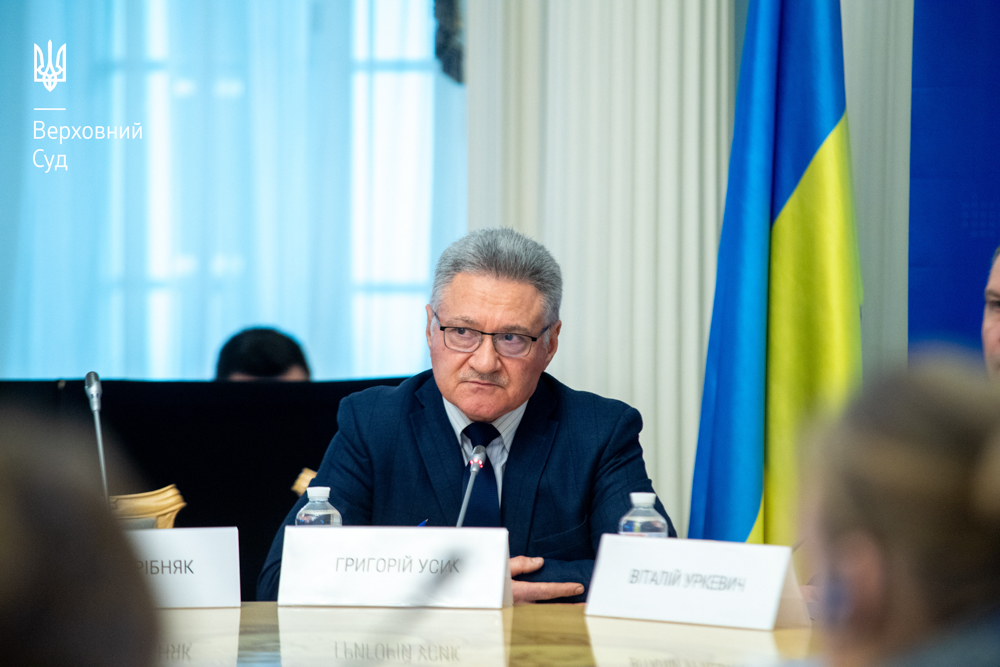
Maksym Pampura, Acting Head of the State Judicial Administration of Ukraine, presented statistics on the use of videoconferencing in court proceedings. From 5 October 2021, when certain subsystems (modules) of UJITS were officially put into operation, until the end of 2022, about 80 thousand users of the UJITS videoconferencing subsystem were registered and about 766 thousand court hearings were held using videoconferencing technologies. In 2023, the number of users increased to 112 thousand and almost 1.7 million court hearings were held. Today, more than 140 thousand users are registered in the videoconferencing subsystem and almost 2.6 million court hearings have been held via videoconferencing. These figures demonstrate the importance of solving the problem of distance justice.
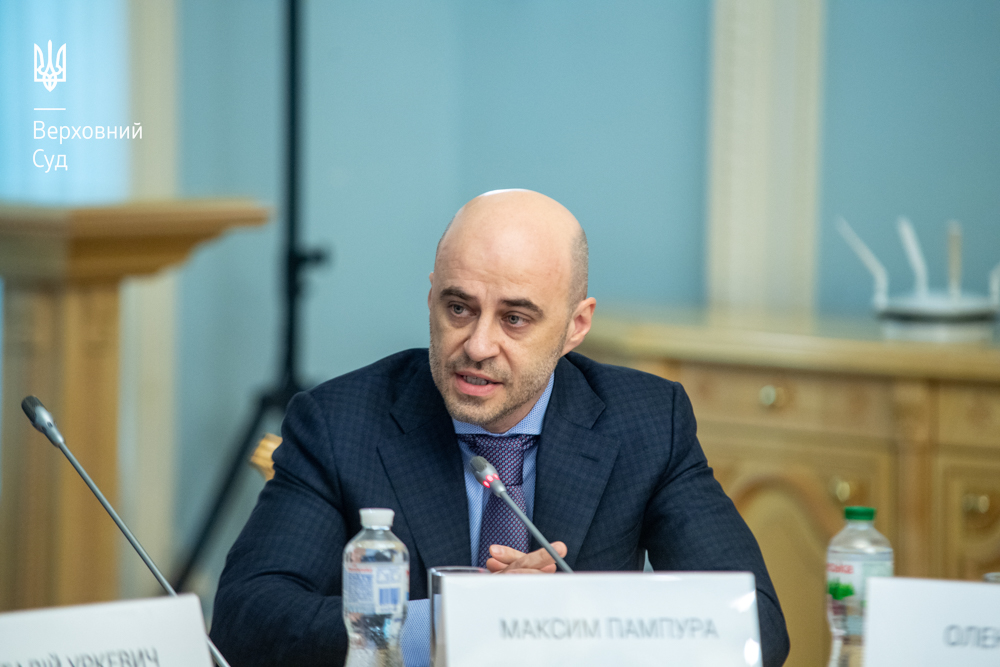
According to Olha Sribniak, Deputy Project Manager of the EU Pravo-Justice project, first the coronavirus pandemic and now Russia's full-scale invasion of Ukraine have become powerful triggers for the digitalisation of relations between the state and the citizen. Undoubtedly, the judiciary should be an integral part of this process, as millions of Ukrainian citizens are currently deprived of the opportunity to participate in court hearings for objective reasons. Olha Sribniak emphasised that the report presented not only outlines the key challenges on the way to remote hearings, but also analyses international practice, including the experience of EU countries, and provides recommendations on how Ukraine can improve the operation of this mechanism in the current circumstances.
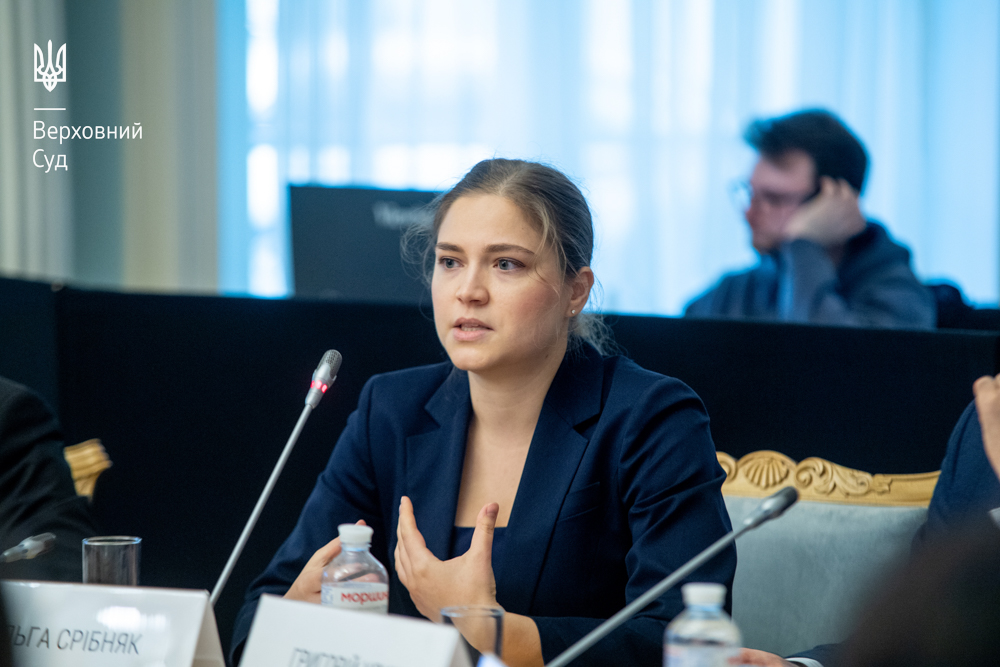
Roman Chumak, co-author of the report "Remote Hearings in Civil, Commercial and Administrative Proceedings", co-founder and chairman of the NGO Interregional Expert Centre "PRO Justice", explained that the purpose of the study was to identify the most common problems and make concrete recommendations for their solution. According to him, in today's extremely difficult conditions, the process of distance justice requires effective administration with a people-centred approach.
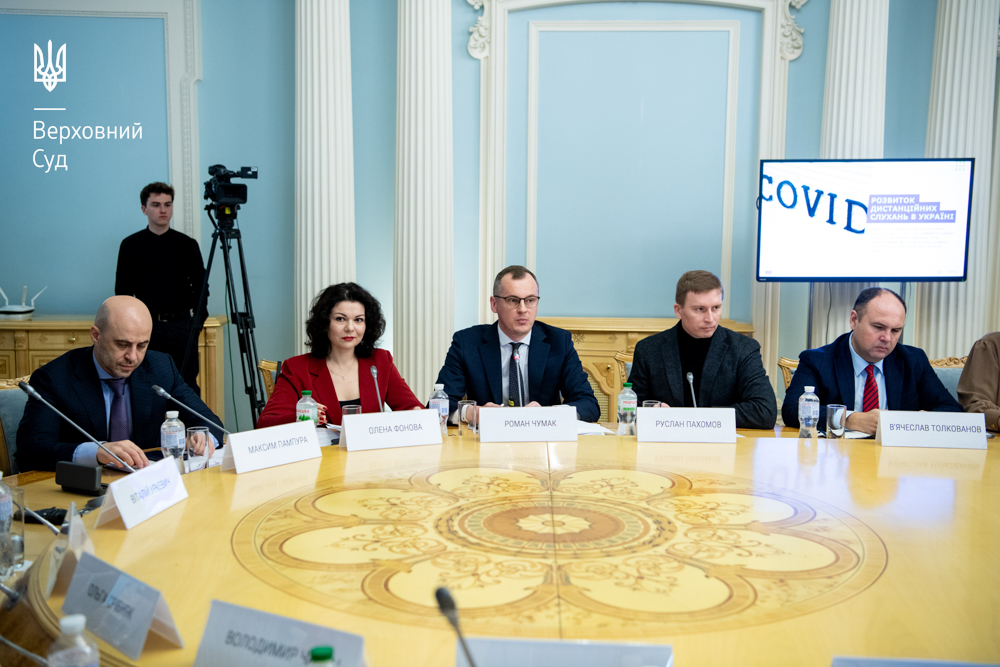
Presenting the report, Roman Chumak and co-author Olena Fonova, a judge and spokesperson for the Commercial Court of the Luhansk region, co-founder and deputy head of the NGO Interregional Expert Centre "PRO Justice", said that almost 20 thousand court decisions were analysed during the preparation of the report.
According to Roman Chumak, the number of court decisions issued as a result of consideration of requests to participate in a court hearing via videoconference is growing. This shows the demand for this mechanism. Olena Fonova informed that for the period from 2020 to 2023, the ratio of the number of decisions refusing to hold remote hearings to the total number of decisions on remote hearings is in favour of holding remote hearings.
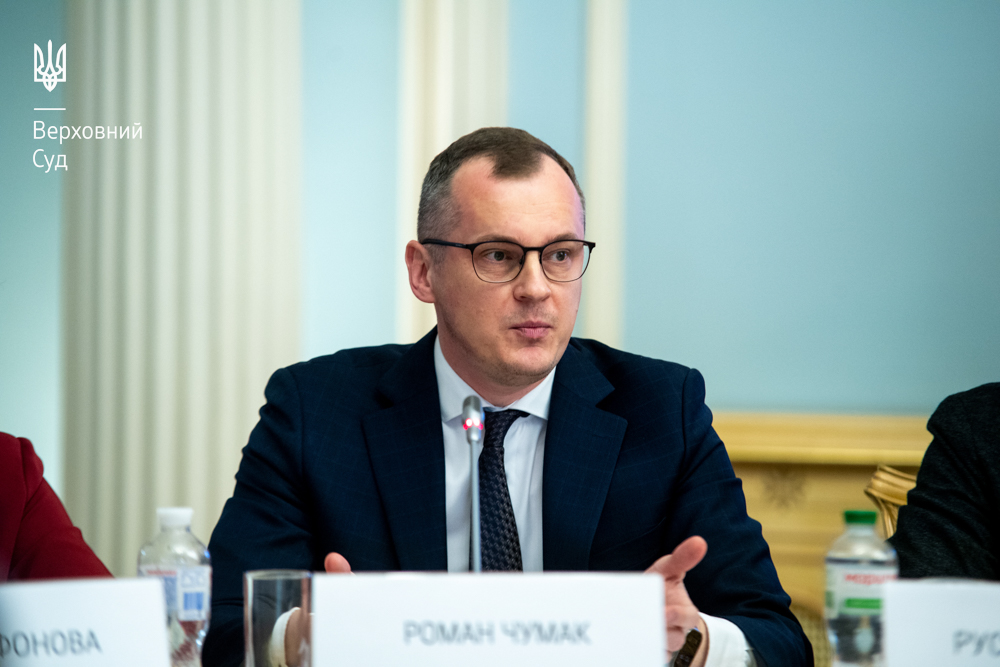
The authors of the study listed the reasons why courts refused to hold a remote hearing. These include: lack of technical possibilities to hold a court hearing by videoconference; failure to comply with the time limits for submitting a request to participate in a court hearing by videoconference and failure to send a copy of the request to other parties to the case within the same time limit; lack of evidence of the impossibility of a party to the case to attend the court hearing, etc.
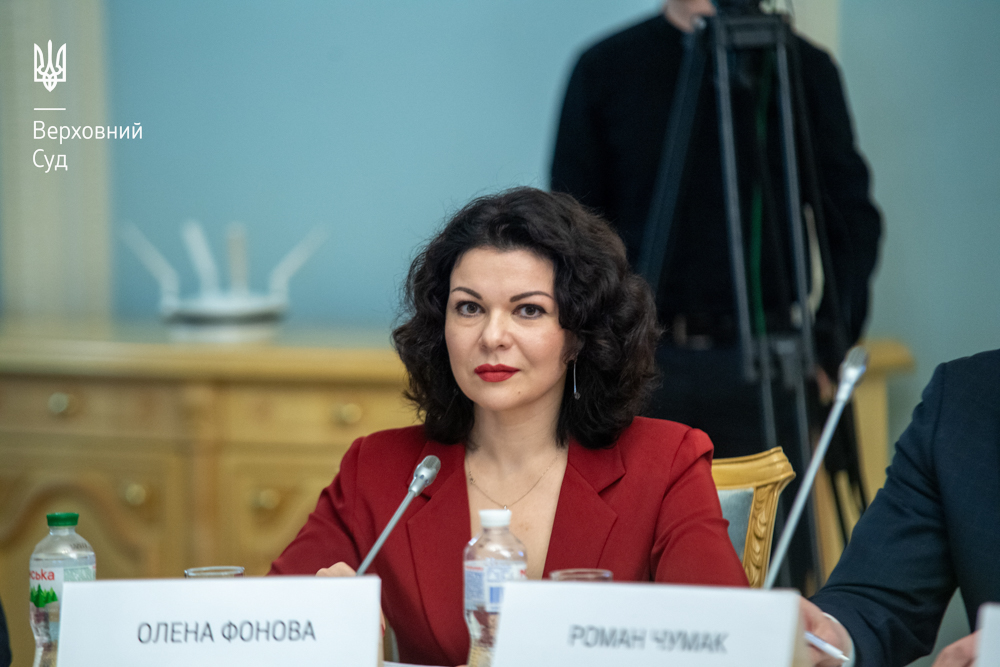
Roman Chumak and Olena Fonova also noted that the report contains information on existing legislative initiatives regarding remote hearings. In particular, the Verkhovna Rada of Ukraine is currently considering three draft laws aimed at improving the possibilities of remote proceedings (draft laws No. 8358 of 13 January 2023 and No. 9090 and No. 9091 of 10 March 2023). In this context, Olena Fonova emphasised the need for legislative regulation of the introduction of remote hearings not only for the parties to the case, but also for court reporters and judges.
The report also analyses international experience in the digitalisation of the justice system. Roman Chumak focused, among other things, on successful examples of the use of electronic communication tools in the judiciary in Spain, Estonia, Latvia and other countries.
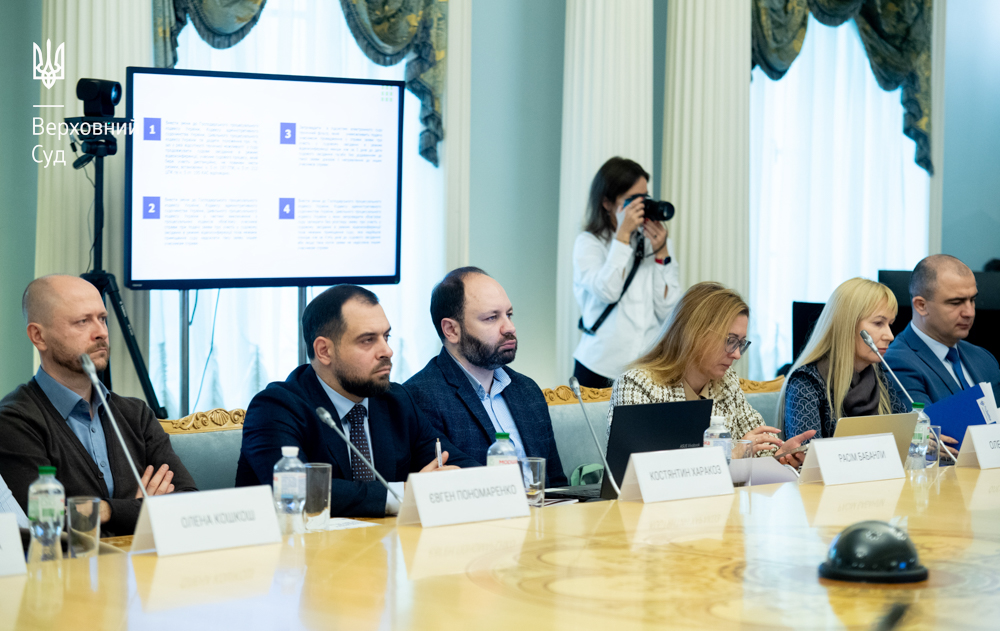
The authors of the study summarised that for the effective functioning of remote hearings, it is necessary, first of all, to introduce appropriate amendments to the Commercial Procedural Code of Ukraine, the Code of Administrative Proceedings of Ukraine and the Civil Procedural Code of Ukraine, which, in particular, would provide for the exclusion from the procedural codes of the obligation of a party to a case to send such an application to other parties to the case when submitting an application for participation in a court hearing via videoconference outside the court premises; which would grant the judge the right to conduct a court hearing with the help of his own technical means from a safe room of his choice, without being bound to the courtroom; which would enshrine the unconditional right of parties to request participation in a court hearing via videoconferencing without having to justify such a request, unless the court recognises the appearance of this party at the court hearing as mandatory, etc.

Also at the event, Ruslan Pakhomov, Managing Partner at Forsego Ukraine, highlighted the prospects for the development of the Electronic Court and its impact on remote court hearings.
At the end of the discussion, Vitalii Urkevych, Secretary of the Grand Chamber of the Supreme Court, summed up that representatives of the judiciary should always seek a balance, including on the issue of remote hearings. It is impossible to completely abandon direct participation in court proceedings. At the same time, litigants should be able to participate in court hearings remotely under certain circumstances.
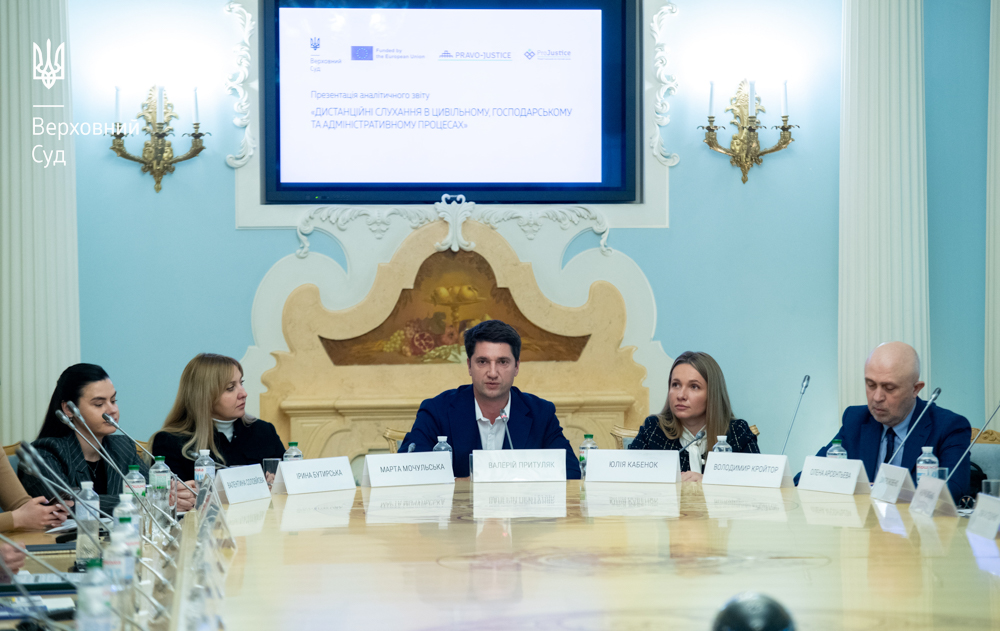
You can watch the presentation and discussion of the study on the Supreme Court's YouTube channel - https://www.youtube.com/watch?v=0plGEjReGjo.
The report ‘Remote Hearings in Civil, Commercial and Administrative Proceedings’ is available here.
